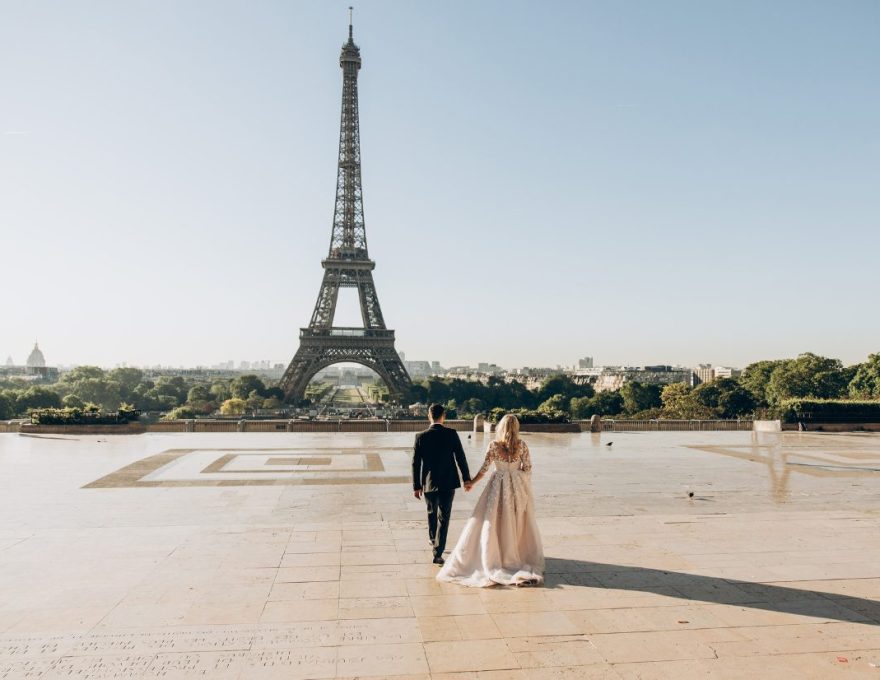If you are planning your wedding from abroad – whether you live in Ireland and are getting married somewhere else, or you live somewhere else and you’re getting married in Ireland – then this is for you!
Weddings abroad provide an opportunity to tie the knot in a spectacular way, but there’s a lot to consider. Do you book your suppliers in your home town or your destination? What about the legal aspect?
Local vs international suppliers?
If you are planning your wedding from abroad, you need to decide how important it is for you to meet your suppliers face to face.
Covid has made it easier to connect online via emails, online venue tours and even video meetups.
If it’s important to you that you meet suppliers face to face, then these are your options:
- Hire suppliers who are local to you (wedding planning, photographer etc) who will travel to your destination.
- Plan one or two wedding planning trips to your wedding destination, where you can meet your suppliers, book them and do some wedding planning together.
If you are happy with virtual planning:
- Hire wedding suppliers who are local to your wedding destination!
- If you are far away from the destination, it can be comforting knowing that your suppliers are on the ground and able to do some of the legwork for you from afar.
Ask for supplier recommendations
Supplier clusters who have worked together will be a dream!
A photographer who has worked at your venue.
A hairdresser and makeup artist who work together often.
A wedding planner who knows an amazing band or DJ, etc.
Can an Irish couple get legally married abroad?
We recently spoke with a number of destination wedding suppliers who answered this question for us!
Read more: Getting legally married abroad
Marcella from Your Dream Wedding in Spain says that in her local area, Costa Blanca, Catholic weddings take place every day and are recognised as legal. This is what she says:
The first step is to contact the Parish Priest where the future bride resides.
The Parish Priest will initiate the documentation (Baptismal Certificates, Letters of Freedom and photocopies of Passports) and will make contact with the diocese in Spain.
Catholic weddings follow the same procedure throughout the world, so the requirements are the same as in Ireland. The only thing that changes is the address of the church. We are able to get English-speaking Priests to conduct the ceremony.
If you’re not sure, or you are getting married somewhere where it’s complicated or impossible to tie the knot legally, you could do the legal bit in your home country and then have a symbolic ceremony at your destination wedding.
See more: Getting Legally Married in Ireland
Weddings abroad – top tips:
- Hire a reliable wedding planner – somebody who’s on the ground and can oversee the plans on your behalf.
- Let your on site wedding planner tell you what wedding venues are ACTUALLY like. You can also find venues through reliable sources and not just via google.
- Visit your destination wedding location at least once before the Big Day – one trip to find your venue and suppliers, and then another trip closer to the time to solidify plans and go through details (like venue layout, flower colours etc).
- If you are getting married legally in a different country, make sure you know which documents you need and get those ready ahead of time!
- Consider a midweek wedding if you’re looking to save – if guests are already taking time off work to travel and be part of your Big Day, a midweek wedding is a great option.
- Choose a wedding dress to fit the location (ie avoid a ball gown for a beach wedding).



